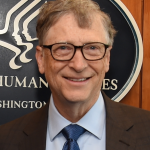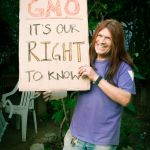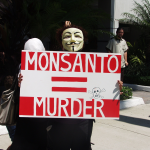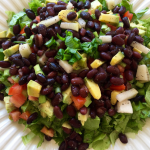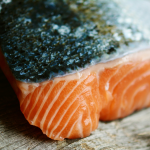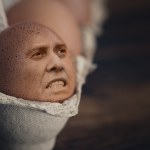Countries that ban biotech crops aren't necessarily GMO-free. There's a prohibition-inspired lesson for regulators and activist groups in these nations if they're willing to listen.
Food & Nutrition
The anti-biotech group U.S. Right to Know has launched a crusade against Bill Gates, warning of his dangerous agenda for global food production. Unfortunately, the facts complicate the David vs. Goliath narrative the group is pushing.
Buying from your nearby farmer's market offers a number of important benefits. Environmental sustainability and local economic growth are not among them, according to a new review of the evidence.
The anti-biotech movement continues to warn that consuming GE crops makes people sick. A recent email blast from The Institute for Responsible Technology typifies the latest arguments coming from activist groups. How well do these stand up to the facts?
The anti-GMO movement used to be a cultural juggernaut. But as time goes on, the activist groups that once held so much sway seem increasingly irrelevant.
Neutraceuticals is a portmanteau, the combination of the words "nutrition" and "pharmaceuticals." It refers to “a food containing health-giving additives and having medicinal benefit,” and which seeks to combine the halos of good nutrition and medicine. It seems too good to be true. And as you know, often that promise is more sizzle than steak.
Another study highlights the overlap between genetic engineering in medicine and agriculture, offering another example of why the anti-GMO movement is losing its cultural relevance.
The first customers have lined up for AquaBounty's genetically engineered (GE) salmon, committing to purchase five metric tons of the fish that will be harvested at the end of May. After 30 years of regulatory roadblocks, lawsuits, and activist opposition, AquAdvantage salmon may finally be heading to US restaurants and grocery stores.
Microorganisms like viruses and bacteria are harmful to us, and they cause diseases. What if you knew that in your body trillions of beneficial microorganisms exist? How do they benefit us, and what can we do to keep them healthy?
A new study offers preliminary evidence that consuming sugary drinks may boost women's risk of early-onset colorectal cancer. Further research has to confirm this link before we draw conclusions, but that hasn't stopped reporters from exaggerating the paper's significance.
Pop Quiz: You open the refrigerator and pull out a tasty treat. It’s May 6 and the label says: “Use By” May 4. Do you eat or toss? And what if it said: “Best if Used By”? Although you think you know the correct answer, most of us don’t.
"Why Is Bill Gates Buying Up Stolen Native American Land?" British comedian and actor Russell Brand asked in a recent YouTube video. Relying largely on anti-GMO activist Vandana Shiva, Brand spent nearly 17 minutes warning about the dangers of billionaires taking over the global food system. Here's what he got wrong.

